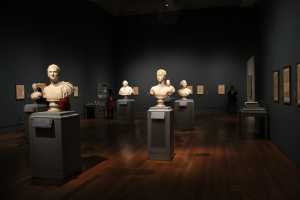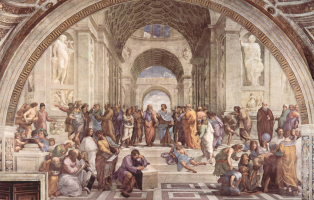Top 10 Definition Essay Examples about Music
Embark on a rhythmic exploration with "Definition Essay Examples about Music." In this journey, we unravel the power, diversity, and impact of music, a ... read more...universal language that speaks to the soul.
-
Essay Topic: Jazz.
Answer:
Jazz, a genre of music that swings and improvises, is like a musical journey through time. This essay explores how jazz has changed and grown over the years, understanding its importance and the joy it brings to listeners.
In the world of music, jazz stands out as a genre that has evolved like a captivating story. Imagine taking a stroll through the decades, hearing the smooth tunes of early jazz and feeling the vibrant energy of its modern variations. That's the magic of the evolution of jazz - a musical adventure that has spanned the 20th century and beyond.
At its core, jazz began as a blend of African and European musical traditions in the southern United States. It emerged in the late 19th century, and as the years passed, it transformed into various styles, each with its own unique flavor. Early jazz, with its lively rhythms and improvised melodies, laid the foundation for the genre's growth.
As time marched on, jazz found its way into big bands and swing orchestras, creating music that made people want to dance. The 1940s brought the era of bebop, a faster and more complex style, while the 1950s and 1960s introduced cool jazz and free jazz, each pushing the boundaries of what jazz could be.
The late 20th century witnessed the fusion of jazz with other genres like rock and hip-hop, bringing a fresh and eclectic sound to the scene. Today, jazz continues to evolve, with artists blending traditional elements with modern influences, keeping the genre alive and thriving.
In daily life, the evolution of jazz finds its way into our ears, making ordinary moments extraordinary. Whether it's the soothing sounds of a saxophone in a classic jazz tune or the experimental beats in a contemporary jazz piece, the genre adds a diverse and rich layer to our musical experiences.
Moreover, jazz is a universal language that transcends age and brings people together. Whether you're a teenager or an adult, the timeless appeal of jazz speaks to our emotions, creating connections through its melodies and rhythms.
In conclusion, the evolution of jazz is like a musical time-travel adventure. From its humble beginnings in the southern United States to the diverse and innovative sounds of today, jazz continues to captivate and inspire. So, as high school students exploring the vast world of music, let's appreciate the magic of the evolving jazz genre, recognizing its role in bringing joy, diversity, and a touch of improvisational wonder to our ears.
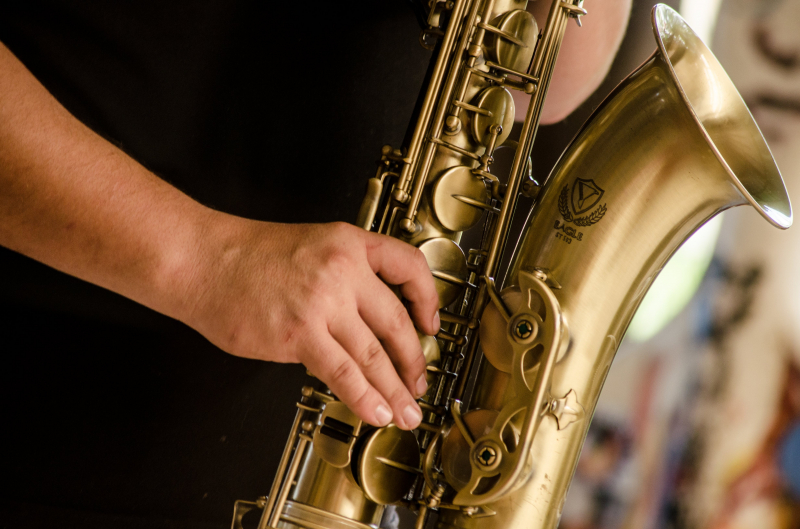
Photo by Ruca Souza via pexels 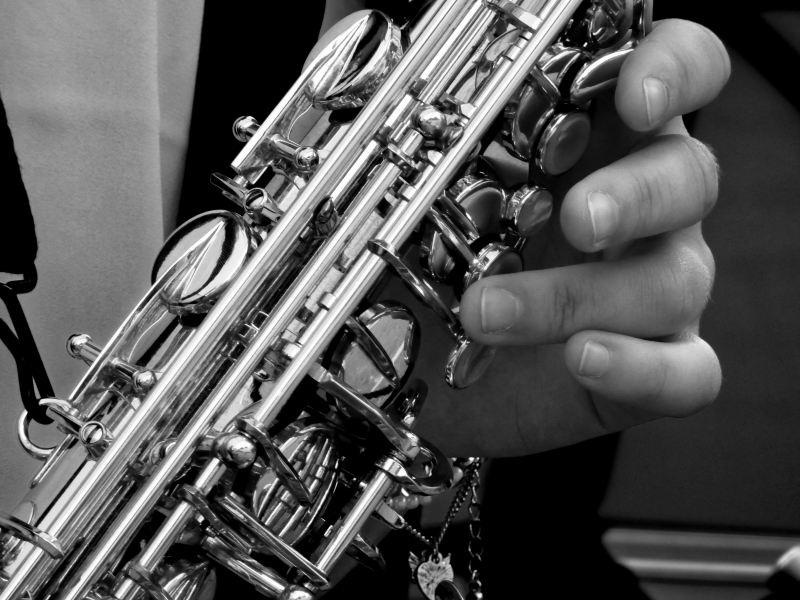
Photo by Pixabay via pexels -
Essay Topic: Classical Music.
Answer:
Classical music, a timeless genre that travels through history, is like a musical journey embracing different ages and emotions. This essay unravels the essence of classical music, understanding its significance and the beauty it adds to our musical experiences.
In the vast realm of music, classical melodies stand as a grand tapestry weaving together centuries of harmonies. Imagine stepping through the musical halls of time, from the graceful tunes of the Baroque era to the powerful symphonies of the Romantic period. That's the enchantment of classical music - a journey that resonates through time, creating a bridge between the past and the present.
At its core, classical music blossomed in Europe around the 18th century, captivating audiences with its elegance and intricate compositions. Crafted by masters like Mozart, Beethoven, and Bach, classical music is known for its emotive expressions and structured beauty. It's like a musical language that speaks across generations, telling stories without words.
As the years unfolded, classical music transformed through various periods. The Baroque era brought ornate compositions, the Classical era emphasized clarity and balance, and the Romantic era expressed deep emotions and individualism. Each era added its unique brushstroke to the canvas of classical music, creating a rich collection of masterpieces.
Classical music isn't confined to the past; it finds its way into our ears, making everyday moments extraordinary. Whether it's the soothing sounds of a violin concerto during a peaceful evening or the triumphant notes of a symphony building to a crescendo, classical music adds a sense of elegance and beauty to our auditory experiences.
Moreover, classical music is a universal language that speaks to hearts of all ages. Whether you're a teenager or an adult, the timeless appeal of classical compositions transcends the barriers of time, creating connections through its intricate melodies and harmonious arrangements.
In conclusion, classical music is like a musical journey through time, leaving an imprint of beauty and emotion. From the refined tunes of the Baroque period to the passionate expressions of the Romantic era, classical music continues to captivate and inspire. So, as high school students exploring the vast world of music, let's appreciate the magic of classical music, recognizing its role in bringing beauty, depth, and a timeless sense of harmony to our ears.
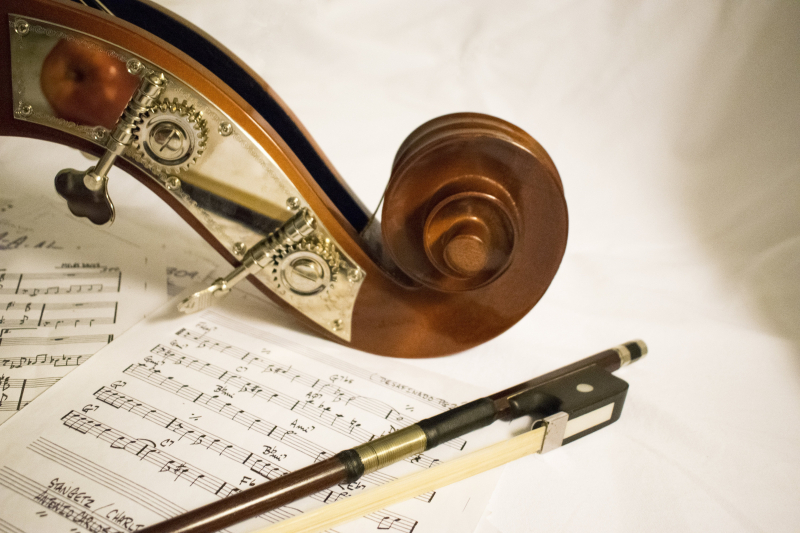
Photo by Pixabay via pexels 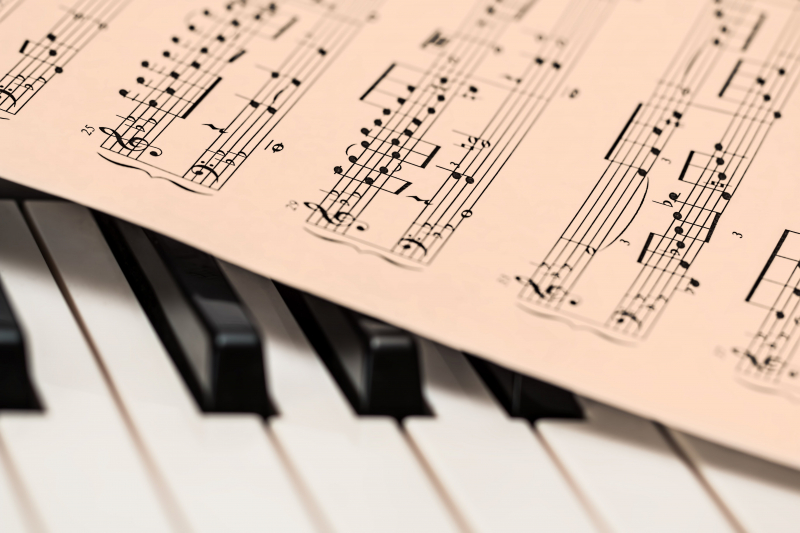
Photo by Pixabay via pexels -
Essay Topic: Rock and Roll.
Answer:
Rock and roll, a lively genre that echoes through time, is like a musical adventure filled with rebellion and rhythm. This essay delves into the heart of rock and roll, understanding its significance and the excitement it brings to listeners.
In the world of music, rock and roll stands out as an energetic dance that has spanned generations. Imagine strolling through the vibrant beats and rebellious chords defining this genre, from the early days of Elvis Presley to the electrifying performances of modern rock bands. That's the magic of rock and roll - a musical journey shaping the soundscape of different eras.
At its core, rock and roll burst onto the music scene in the mid-20th century, carrying the spirit of rebellion and a fresh, upbeat rhythm. Originating from a mix of rhythm and blues, country, and gospel, it became a voice for the young and the bold. Rock and roll is like a musical rebel, challenging norms and inviting everyone to join the beat.
As the years rolled on, rock and roll evolved through different subgenres - from the raw power of classic rock to the experimental sounds of psychedelic rock and the energetic vibes of punk rock. Each twist and turn added a unique flavor to the genre, making it a dynamic and ever-changing force in the world of music.
Rock and roll isn't confined to history; it finds its way into our ears, making ordinary moments extraordinary. Whether it's the roaring guitar solos of a classic rock anthem during a road trip or the pulsating rhythms of a modern rock band at a concert, rock and roll adds a sense of excitement and freedom to our musical experiences.
Moreover, rock and roll is a universal language that speaks to hearts of all ages. Whether you're a teenager or an adult, the timeless appeal of rocking tunes transcends time, creating connections through its infectious beats and electrifying performances.
In conclusion, rock and roll is like a musical journey through rebellion and rhythm. From its rebellious roots in the mid-20th century to the diverse sounds of today, rock and roll continues to captivate and energize. So, as high school students exploring the vast world of music, let's appreciate the magic of rock and roll, recognizing its role in bringing excitement, freedom, and a rebellious spirit to our ears.
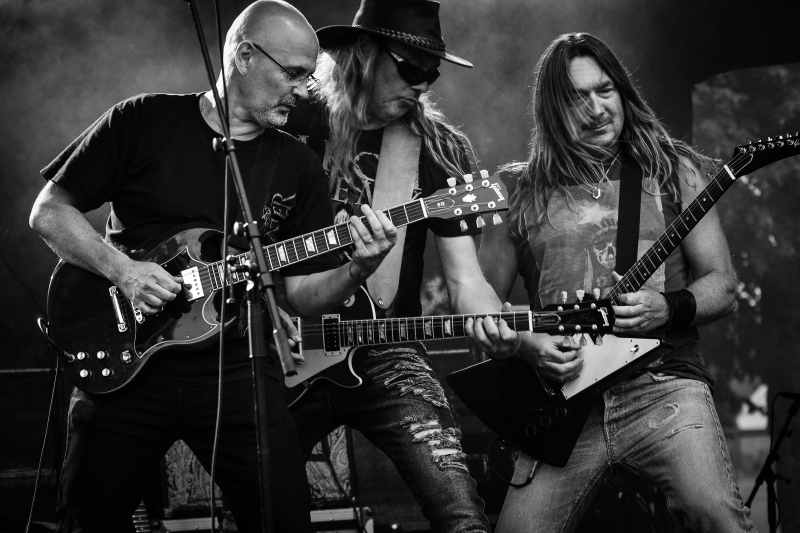
Photo by Pixabay via pexels 
Photo by Pixabay via pexels -
Essay Topic: Hip-Hop Music.
Answer:
Hip-hop, a dynamic genre that echoes through communities, is like a musical tale of expression and beats. This essay uncovers the heart of hip-hop music, understanding its significance and the vibrant energy it brings to listeners.
In the world of music, hip-hop stands tall as a lively storyteller, narrating tales through rhythmic beats. Imagine strolling through the pulsating sounds and expressive verses that define this genre, from its Bronx beginnings to the chart-topping hits of today. That's the magic of hip-hop - a musical narrative that weaves the experiences of diverse voices.
At its core, hip-hop emerged in the South Bronx in the 1970s, born from the creativity of young artists and the beat of turntables. Rooted in African and Caribbean influences, hip-hop became a powerful way to express thoughts, feelings, and the realities of urban life. It's like a musical diary, echoing the stories of the streets.
As the years unfolded, hip-hop evolved through different elements - from rap and DJing to breakdancing and graffiti art. Each element added its unique flavor to the genre, turning hip-hop into a cultural movement that goes beyond just music. It became a voice for communities, addressing social issues and celebrating individuality.
Hip-hop isn't confined to the past; it finds its way into our ears, making everyday moments extraordinary. Whether it's the rhythmic flow of a rap verse during a chill hangout or the beats of a hip-hop track at a party, hip-hop adds a sense of vibrancy and authenticity to our musical experiences. Moreover, hip-hop is a universal language that speaks to hearts of all ages. Whether you're a teenager or an adult, the appeal of hip-hop transcends generations, creating connections through its beats and relatable stories.
In conclusion, hip-hop is like a musical tale of expression and beats. From its Bronx roots to the global stage, hip-hop continues to captivate and energize. So, as high school students exploring the vast world of music, let's appreciate the magic of hip-hop, recognizing its role in bringing vibrancy, authenticity, and a powerful voice to our ears.

Photo by khezez | خزاز via pexels 
Photo by Pixabay via pexels -
Essay Topic: Music Legends.
Answer:
Music legends, like timeless storytellers, are individuals who leave an indelible mark on the world of sound. This essay uncovers the essence of music legends, understanding their significance and the enduring impact they bring to listeners.
In the vast world of music, legends are like magical figures who create melodies that echo through time. Imagine wandering through the tunes crafted by legendary artists, from the soulful croons of Elvis Presley to the revolutionary beats of Michael Jackson. That's the enchantment of music legends - a journey through the notes and rhythms that have shaped the musical landscape.
At their core, music legends are individuals who rise above, creating tunes that become a part of the collective soundtrack of our lives. Crafted by masters like The Beatles, Bob Marley, and Whitney Houston, their songs carry emotions and stories that resonate across generations. It's like a musical legacy, passed down from one era to the next.
As the years roll on, new legends emerge, each bringing a unique sound to the global stage. Whether it's the rhythmic genius of Beyoncé or the poetic melodies of Ed Sheeran, these modern legends continue the tradition of creating music that speaks to the heart. They become voices of their time, shaping the musical conversations of today.
Music legends aren't confined to a specific era; their tunes find their way into our ears, making ordinary moments extraordinary. Whether it's the nostalgic melody of a classic legend during a family gathering or the fresh beats of a modern legend at a friend's house, their music adds a touch of magic and timelessness to our auditory experiences.
Moreover, music legends are universal figures who transcend age, connecting people through the emotions their music evokes. Whether you're a teenager or an adult, the impact of a legendary song can create a shared experience, a moment frozen in time.
In conclusion, music legends are like timeless storytellers whose melodies become a part of our lives. From the classics to the contemporary, these legends continue to captivate and inspire. So, as high school students exploring the vast world of music, let's appreciate the magic of music legends, recognizing their role in bringing emotions, stories, and an enduring musical legacy to our ears.

Photo by halilibrahimxq via pexels 
Photo by Pixabay via pexels -
Essay Topic: Music in Film.
Answer:
Music in film, akin to a silent companion, plays a crucial role in shaping the emotions and atmosphere of cinematic experiences. This essay delves into the essence of music in film, understanding its significance and the emotional depth it adds to the visual narratives.
In the world of cinema, music becomes a hidden storyteller, painting emotions with its notes and melodies. Imagine watching a movie without the accompanying tunes that intensify joy, suspense, or sadness - that's the magic of music in film. It's a journey through sound that enhances the visual tales unfolding on the screen.
At its core, music in film serves as a vital tool for filmmakers to convey emotions and create memorable moments. Crafted by talented composers like John Williams or Hans Zimmer, the musical scores become an invisible thread weaving through the scenes, elevating the impact of storytelling. It's like a silent language that speaks directly to our feelings.
As the scenes unfold, different genres of music enhance the cinematic experience. Whether it's the thrilling orchestral pieces during action scenes or the soft piano notes in a romantic moment, the music becomes a companion to the visual narrative, shaping the audience's emotional response.
Music in film isn't confined to grand compositions; it finds its way into our ears, making ordinary moments on screen extraordinary. Whether it's the playful tunes in an animated film or the haunting melodies in a suspenseful thriller, the music becomes an integral part of our cinematic journey.
Moreover, music in film is a universal language that transcends cultural barriers, connecting audiences through shared emotional experiences. Whether you're a teenager or an adult, the impact of a well-composed film score can create a powerful connection, making the cinematic journey more immersive and memorable.
In conclusion, music in film is like a silent maestro, conducting emotions and enhancing the visual narratives. From grand orchestral pieces to subtle piano notes, the music becomes an integral part of our cinematic experience. So, as high school students exploring the vast world of film, let's appreciate the magic of music in movies, recognizing its role in creating emotional depth, enhancing storytelling, and making the cinematic journey unforgettable.

Photo by Pixabay via pexels 
Photo by Pixabay via pexels -
Essay Topic: Opera.
Answer:
The evolution of opera, like a musical time-travel, takes us through centuries of captivating stories told through song. This essay explores the essence of opera evolution, understanding its significance and the rich history it brings to audiences.
In the vast world of music, opera stands as a grand tapestry of storytelling woven through enchanting melodies. Imagine stepping through the musical ages, from the dramatic arias of the Baroque period to the modern twists in contemporary opera. That's the magic of opera evolution - a journey through time that continues to captivate and enthrall.
At its core, opera began its melodious journey in Italy during the late 16th century, combining music, drama, and theatrical spectacle. Crafted by maestros like Mozart, Verdi, and Puccini, opera became a unique art form, telling tales of love, tragedy, and comedy through powerful vocals and orchestral accompaniments. It's like a musical theater that transcends time.
As the years unfolded, opera evolved through different periods, each adding a distinct flavor. The Baroque era brought ornate compositions and flamboyant performances, while the Romantic era embraced emotional intensity and grand productions. Contemporary opera continues to push boundaries, incorporating diverse themes and experimental sounds, keeping the genre vibrant and alive.
Opera evolution isn't confined to the past; it finds its way into our ears, making ordinary moments extraordinary. Whether it's the haunting arias from a classic opera during a cultural event or the innovative sounds of a modern opera production, opera continues to enchant and find new expressions in our musical experiences.
Moreover, opera is a universal language that speaks to hearts across ages, connecting people through the emotional power of its stories and melodies. Whether you're a teenager or an adult, the timeless allure of opera compositions creates a shared experience, where emotions and stories transcend the barriers of time.
In conclusion, the evolution of opera is like a musical time-travel, where stories unfold through enchanting melodies. From the classics to the contemporary, opera continues to captivate and transport audiences. So, as high school students exploring the vast world of music, let's appreciate the magic of opera evolution, recognizing its role in bringing timeless stories, emotional depth, and a rich history to our ears.

Photo by Pixabay via pexels 
Photo by cottonbro studio via pexels -
Essay Topic: Pop Music.
Answer:
Pop music, like a cheerful companion, fills our lives with catchy tunes and relatable stories. This essay dives into the heart of pop music, understanding its significance and the joyful energy it brings to listeners.
In the vast world of music, pop stands out as a lively friend, always ready to lift our spirits with its catchy beats. Imagine walking through the tunes that have ruled the charts, from the infectious melodies of The Beatles to the contemporary hits of artists like Taylor Swift. That's the magic of pop music - a musical journey that brings joy and familiarity to our ears.
At its core, pop music is a genre designed to be popular, crafting songs that resonate with a wide audience. Created by icons like Michael Jackson, Madonna, and Beyoncé, pop tunes are like musical ambassadors, crossing borders and bringing people together. It's the soundtrack of our shared experiences.
As the years roll on, pop music evolves through different trends and styles. Whether it's the danceable tunes of the '80s or the electronic beats of the 21st century, pop continues to adapt and reflect the musical tastes of each era. It's a dynamic genre that keeps us tapping our feet and humming along.
Pop music isn't confined to the past; it finds its way into our ears, making ordinary moments extraordinary. Whether it's the familiar chorus of a classic pop hit during a party or the current chart-topper playing on the radio, pop music adds a burst of energy and familiarity to our everyday lives.
Moreover, pop music is a universal language that connects people across ages and cultures. Whether you're a teenager or an adult, the catchy hooks and relatable lyrics of pop songs create shared moments of enjoyment, making it a genre that speaks to the hearts of many.
In conclusion, pop music is like a cheerful companion, bringing joy and familiarity to our musical experiences. From the classics to the contemporary hits, pop continues to be a source of delight. So, as high school students exploring the vast world of music, let's appreciate the magic of pop music, recognizing its role in bringing catchy tunes, shared experiences, and a joyful energy to our ears.

Photo by KoolShooters via pexels 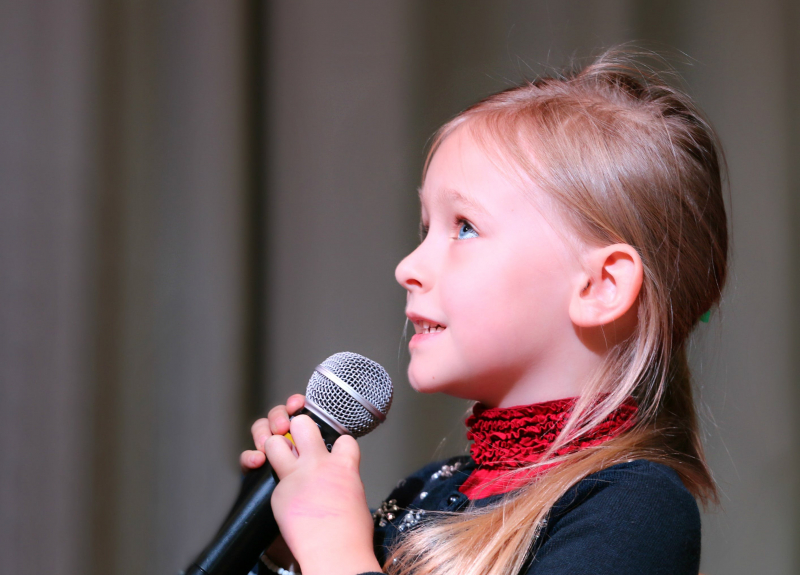
Photo by Pixabay via pexels -
Essay Topic: Folk Music.
Answer:
Folk music, a musical storyteller rooted in tradition, weaves the tales of communities through its melodies. This essay explores the heart of folk music, understanding its significance and the cultural richness it brings to listeners.
In the vast world of music, folk melodies emerge as humble storytellers, sharing the narratives of generations. Imagine stepping into the tunes that have been passed down through time, from the Appalachian mountains to the shores of Ireland. That's the enchantment of folk music - a journey through cultural tales that echo through the chords and verses.
At its core, folk music is the music of the people, born from communities and traditions. Crafted by artists like Woody Guthrie and Joan Baez, folk tunes are like musical diaries, capturing the essence of everyday life, love, and struggles. It's a genre that connects us to the roots of our cultural heritage.
As the years unfold, folk music continues to evolve, adapting to the changing times while preserving its authenticity. Whether it's the acoustic tunes of Bob Dylan in the '60s or the contemporary sounds of indie folk artists today, the genre remains a reflection of the communities that create and cherish it. It's a living art form that carries the voices of the past into the present.
Folk music isn't confined to distant histories; it finds its way into our ears, making ordinary moments extraordinary. Whether it's the soulful ballad of a traditional folk song during a family gathering or the modern interpretations of folk tunes at a local cafe, folk music adds a layer of cultural richness and connection to our musical experiences.
Moreover, folk music is a universal language that speaks to the hearts of people across borders. Whether you're a teenager or an adult, the emotive power of folk melodies creates a shared experience, fostering a sense of community and cultural understanding.
In conclusion, folk music is like a cultural storyteller, bringing the tales of communities to life through its melodies. From the classics to the contemporary interpretations, folk music continues to captivate and connect. So, as high school students exploring the vast world of music, let's appreciate the magic of folk music, recognizing its role in preserving cultural richness, fostering connections, and telling the timeless stories of our heritage.
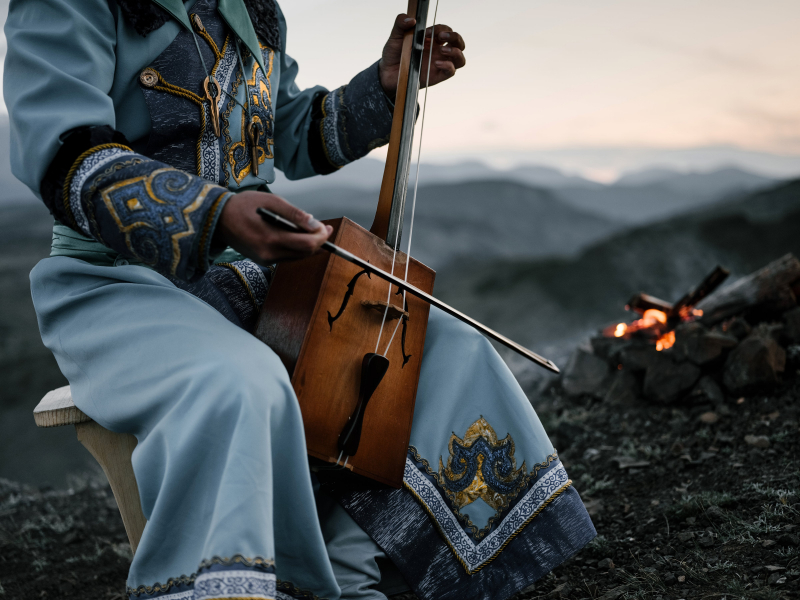
Photo by ArtHouse Studio via pexels 
Photo by ArtHouse Studio via pexels -
Essay Topic: Music's Impact.
Answer:
Music, a powerful companion in our lives, has a profound impact on our emotions, memories, and connections. This essay explores the heart of music's impact, understanding its significance and the ways it enriches our experiences.
In the vast world of sounds, music stands as a steadfast companion, influencing the rhythm of our lives. Imagine a day without your favorite tunes - the cheerful melody that gets you out of bed or the calming notes that accompany a quiet evening. That's the magic of music's impact - a journey through emotions, memories, and connections.
At its core, music impacts our emotions in remarkable ways. Crafted by artists who understand the human soul, music has the power to uplift our spirits, soothe our worries, or accompany moments of celebration. It's like a universal language that speaks directly to our feelings, creating a soundtrack for every mood.
As the years unfold, music becomes intertwined with our memories, forming a tapestry of moments. Whether it's the song that played during a special event or the tunes that marked a significant time in our lives, music becomes a time-traveling companion, evoking emotions and memories with just a few notes.
Music's impact isn't confined to personal moments; it finds its way into our connections with others. Whether it's the shared joy of singing along at a concert or the comfort of knowing someone who loves the same songs, music becomes a bond that connects hearts. It's a shared experience that transcends words and brings people together.
Moreover, music is a universal language that impacts people of all ages and backgrounds. Whether you're a teenager or an adult, the impact of music resonates across generations, creating common ground for shared emotions and experiences.
In conclusion, music's impact is like a silent force that shapes our emotions, memories, and connections. From the personal moments to the shared experiences, music continues to enrich our lives. So, as high school students exploring the vast world of sounds, let's appreciate the magic of music's impact, recognizing its role in enhancing our emotions, weaving memories, and fostering connections that go beyond words.
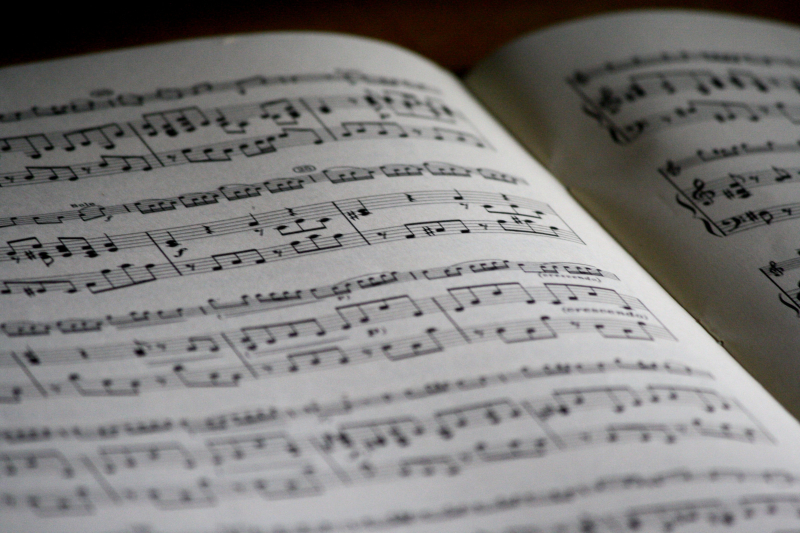
Photo by Pixabay via pexels 
Photo by Marcelo Chagas via pexels















